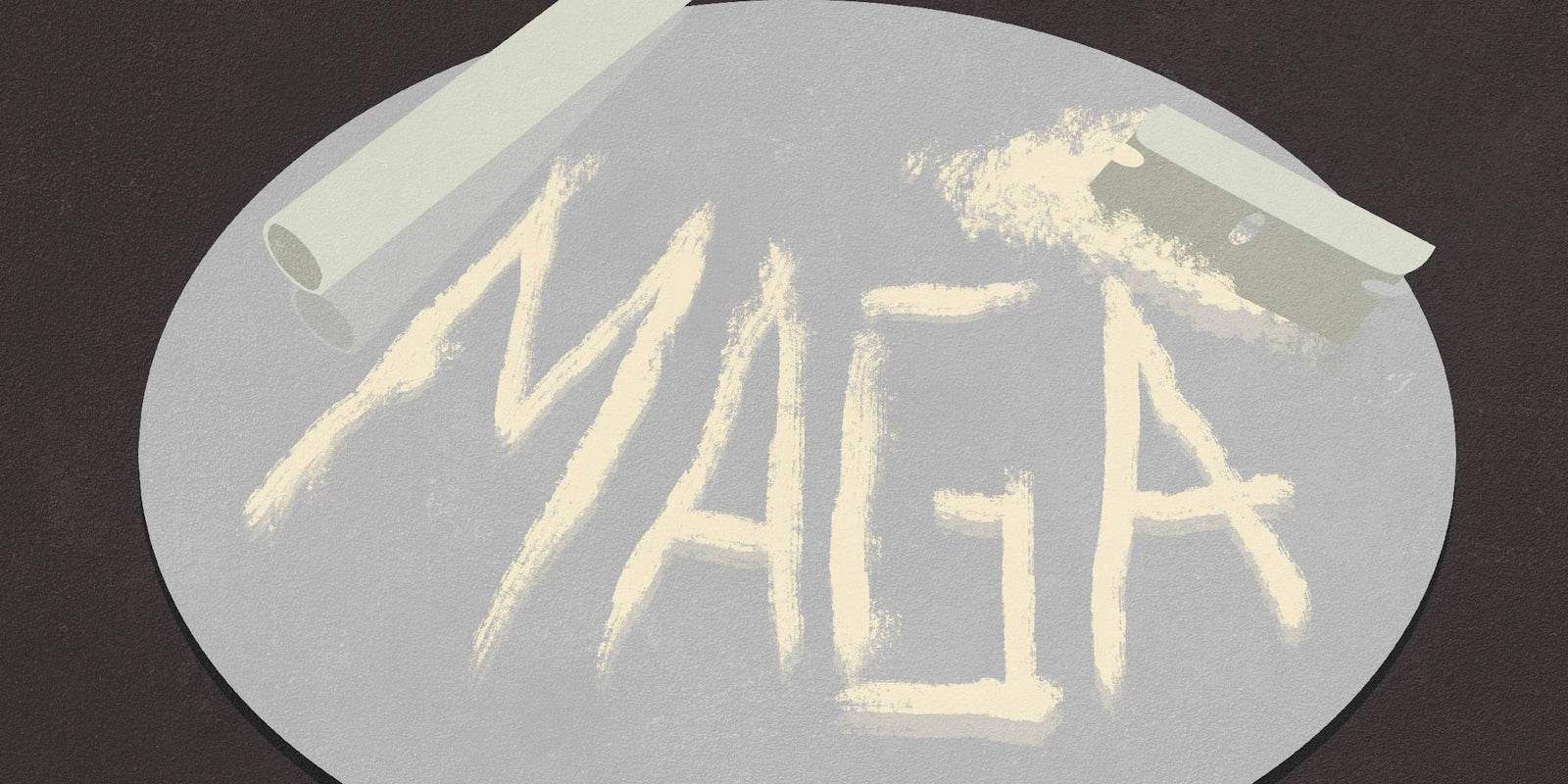For a few hours on Monday, it seemed as if Hillary Clinton’s campaign might be in for a rough week after news broke that Obamacare premiums will soon skyrocket, potentially leading to a Republican windfall up and down the ballot in the final days of an impossible election cycle.
Then, Republican candidate Donald Trump, already beleaguered two weeks before the election by nearly a dozen claims of sexual misconduct, was struck by a pair of controversies on Monday night.
The first, dropped by Michael Gross in the Daily Beast, alleges that Trump hosted cocaine-fueled sex parties in the 1990s where affluent businessmen met to have sex with “girls as young as 15.” Gross, whose book, Model: The Ugly Business of Beautiful Women, lays bare the dark, “flesh peddling” side of modeling industry, cites two alleged witness to Trump’s parties—an unnamed fashion photographer who claims Trump associates “threw money and drugs” at young girls, and Andy Lucchesi, a current model who, when asked about Trump’s female party guests, replied, “A lot of girls, 14, look 24.”
Lucchesi admitted, cryptically, that he, too, had partaken in the “controversial” activities at Trump’s Plaza Hotel in Manhattan. As for the cocaine, Lucchesi insisted that Trump would never indulge. “Donald Trump does not do cocaine. He’s in control of himself,” he said.
In a second, likely more adhesive scandal, investigative reporters at the Telegraph claim to have successfully enticed—by way of an undercover sting—senior figures at leading pro-Trump super PAC into illegally accepting $2 million from a wealthy Chinese businessman.
The 1966 Foreign Agents Registration Act (FARA) forbids foreign nationals and corporations from directly or indirectly donating to U.S. election efforts.
Great America PAC co-chairman Eric Beach reportedly told a pair of Telegraph reporters, who claimed to represent the fictitious Chinese businessman, that their client would be “remembered” if Trump were elected president, according to a report published late Monday evening. Clinton’s campaign was also targeted by the Telegraph’s sting, but reportedly did not respond when approached.
According to the Telegraph’s story:
The reporter said a Chinese client wished to donate to the PAC to support Mr Trump’s campaign.
Mr Beach appeared interested despite raising concerns about his nationality and saying he would need to know the donor’s identity.
He suggested the donation could be put through a social welfare organization called a 501(c)(4)—or C4—which unlike a PAC is not subject to a blanket ban on receiving foreign money, and not required to name donors. He stressed in an email that “any path we recommend is legal.”
While still undercover, the reporters were later allegedly contacted by Jesse Benton, a former senior figure at the PAC, who told them his involvement was to minimize the “paper trail.” Benton also told the reporters that the $2 million in Chinese money would be used “on digital and television advertising for Trump,” while admitting he’d “previously helped U.S. donors conceal donations,” the Telegraph reports.
Benton was convicted in May of campaign bribery for paying a lawmaker for an endorsement of former Texas Rep. Ron Paul during his 2012 presidential campaign.
According to Open Secrets, a website that tracks political expenditures, Great America PAC has received $14 million this election cycle.


